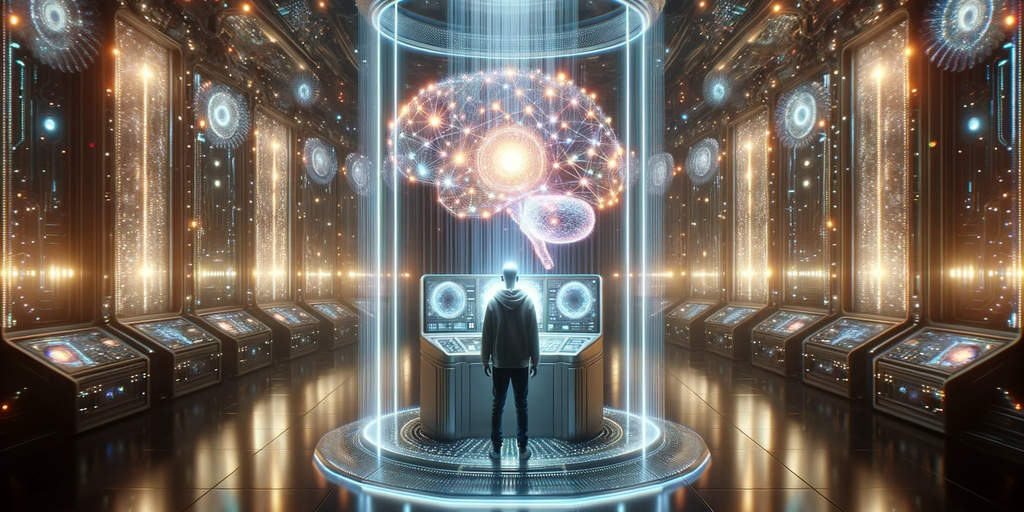Meta Has an AI That Can Read Your Mind and Draw Your Thoughts
The post Meta Has an AI That Can Read Your Mind and Draw Your Thoughts appeared on BitcoinEthereumNews.com. Meta has unveiled a groundbreaking AI system that can almost instantaneously decode visual representations in the brain. Meta’s AI system captures thousands of brain activity measurements per second and then reconstructs how images are perceived and processed in our minds, according to a new research paper. “Overall, these results provide an important step towards the decoding—in real time—of the visual processes continuously unfolding within the human brain,” the report said. The technique leverages magnetoencephalography (MEG) to provide a real-time visual representation of thoughts. MEG is a non-invasive neuroimaging technique that measures the magnetic fields produced by neuronal activity in the brain. By capturing these magnetic signals, MEG provides a window into brain function, allowing researchers to study and map brain activity with high temporal resolution. Image: Meta—’ The AI system consists of three main components: Image Encoder: This component creates a set of representations of an image, independent of the brain. It essentially breaks down the image into a format that the AI can understand and process. Brain Encoder: This part aligns MEG signals to the image embeddings created by the Image Encoder. It acts as a bridge, connecting the brain’s activity with the image’s representation. Image Decoder: The final component generates a plausible image based on the brain representations. It takes the processed information and reconstructs an image that mirrors the original thought. Meta’s latest innovation isn’t the only recent advancement in the realm of mind-reading AI. As reported by Decrypt, a recent study led by the University of California at Berkeley showcased the ability of AI to recreate music by scanning brain activity. In that experiment, participants thought about Pink Floyd’s “Another Brick in the Wall,” and the AI was able to generate audio resembling the song using only data from the brain. Furthermore, advancements in AI and…

The post Meta Has an AI That Can Read Your Mind and Draw Your Thoughts appeared on BitcoinEthereumNews.com.
Meta has unveiled a groundbreaking AI system that can almost instantaneously decode visual representations in the brain. Meta’s AI system captures thousands of brain activity measurements per second and then reconstructs how images are perceived and processed in our minds, according to a new research paper. “Overall, these results provide an important step towards the decoding—in real time—of the visual processes continuously unfolding within the human brain,” the report said. The technique leverages magnetoencephalography (MEG) to provide a real-time visual representation of thoughts. MEG is a non-invasive neuroimaging technique that measures the magnetic fields produced by neuronal activity in the brain. By capturing these magnetic signals, MEG provides a window into brain function, allowing researchers to study and map brain activity with high temporal resolution. Image: Meta—’ The AI system consists of three main components: Image Encoder: This component creates a set of representations of an image, independent of the brain. It essentially breaks down the image into a format that the AI can understand and process. Brain Encoder: This part aligns MEG signals to the image embeddings created by the Image Encoder. It acts as a bridge, connecting the brain’s activity with the image’s representation. Image Decoder: The final component generates a plausible image based on the brain representations. It takes the processed information and reconstructs an image that mirrors the original thought. Meta’s latest innovation isn’t the only recent advancement in the realm of mind-reading AI. As reported by Decrypt, a recent study led by the University of California at Berkeley showcased the ability of AI to recreate music by scanning brain activity. In that experiment, participants thought about Pink Floyd’s “Another Brick in the Wall,” and the AI was able to generate audio resembling the song using only data from the brain. Furthermore, advancements in AI and…
What's Your Reaction?










































